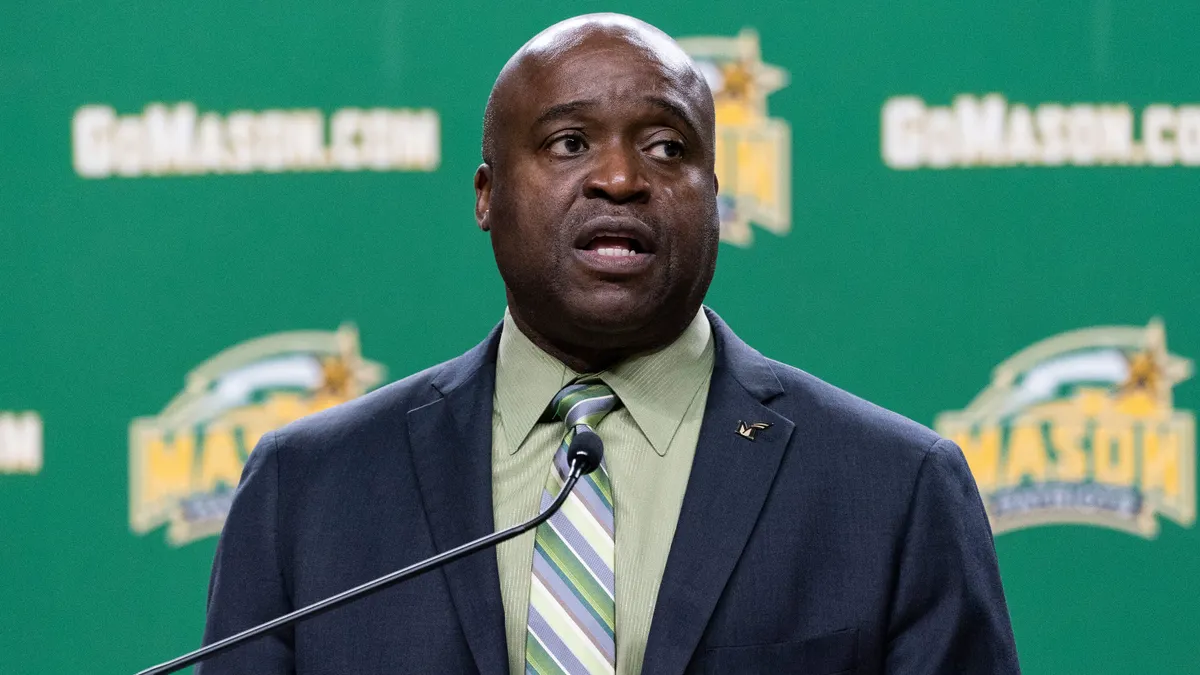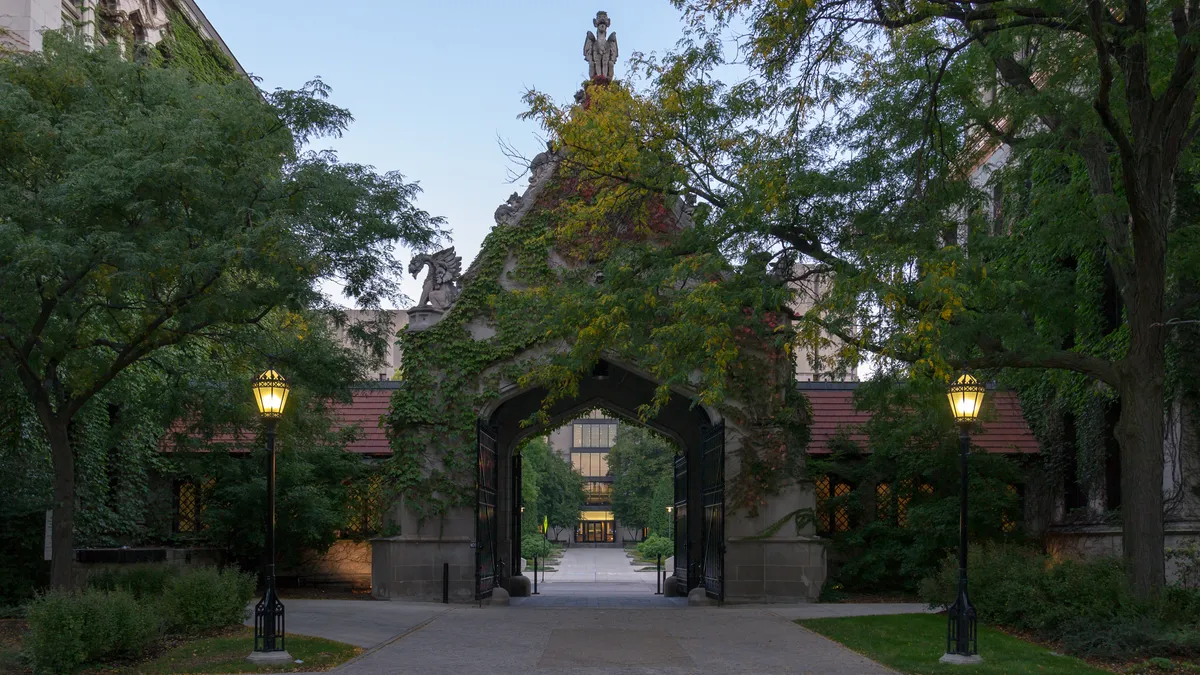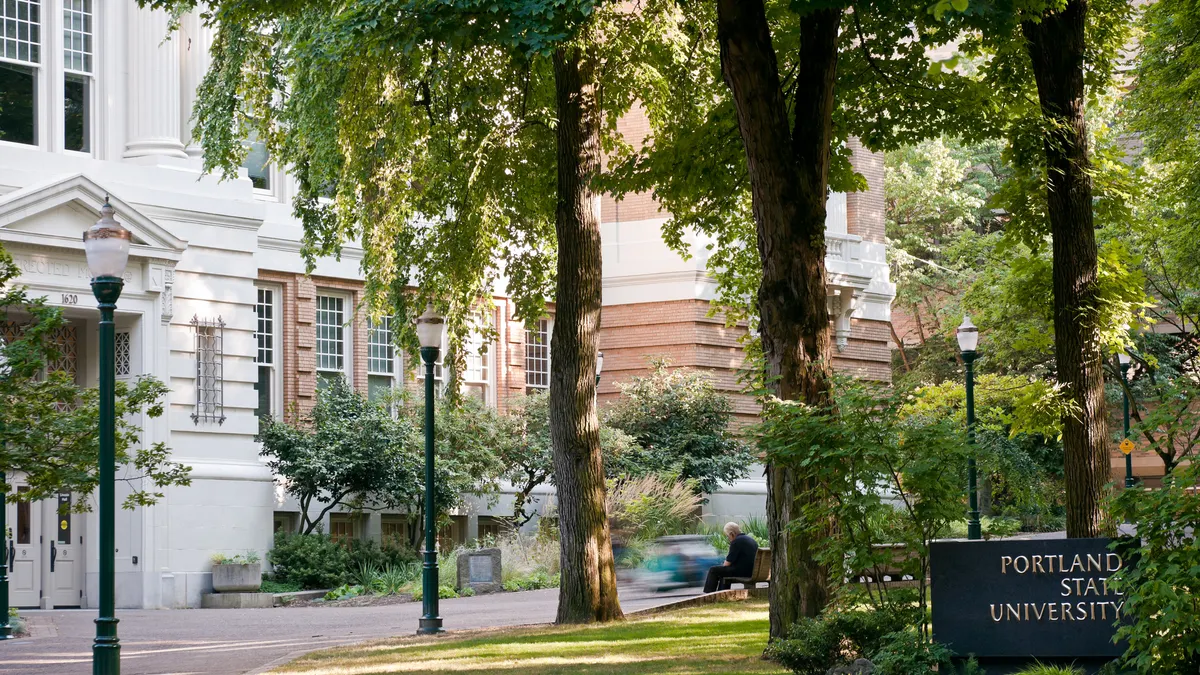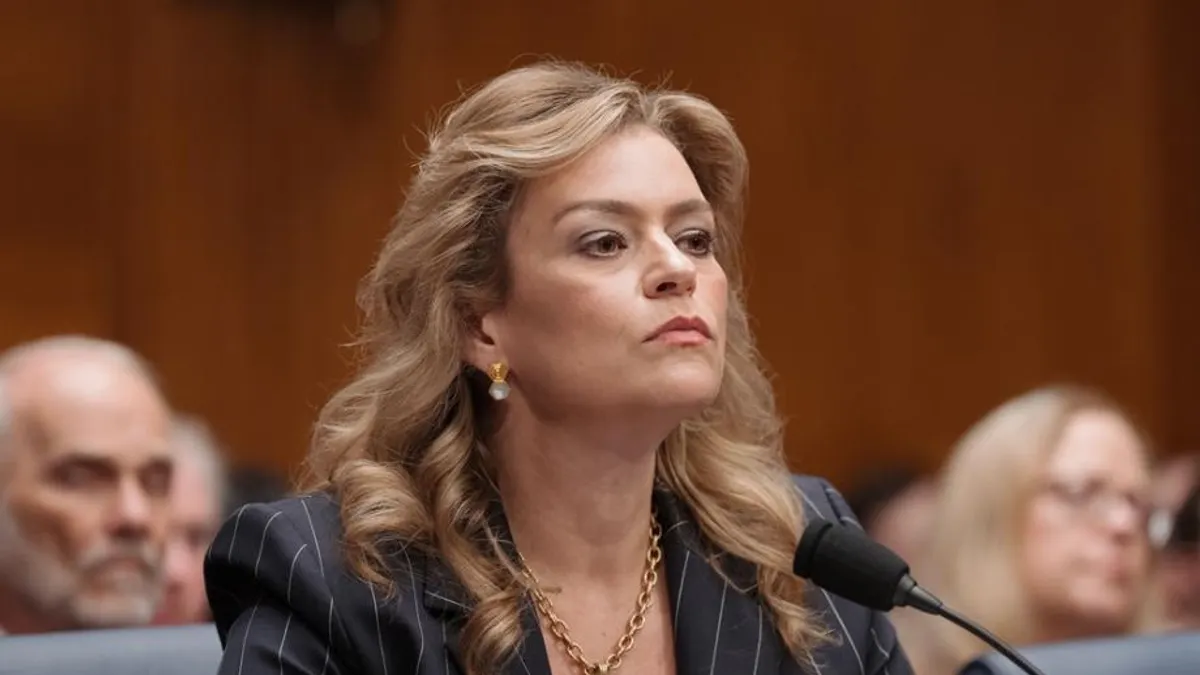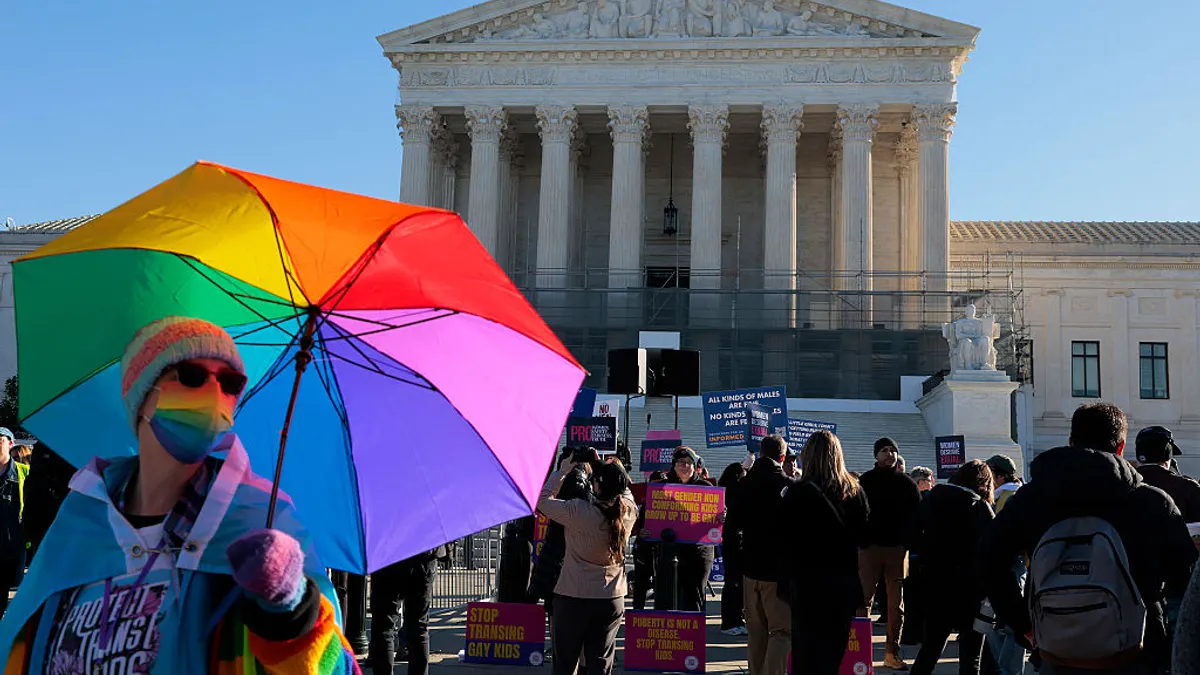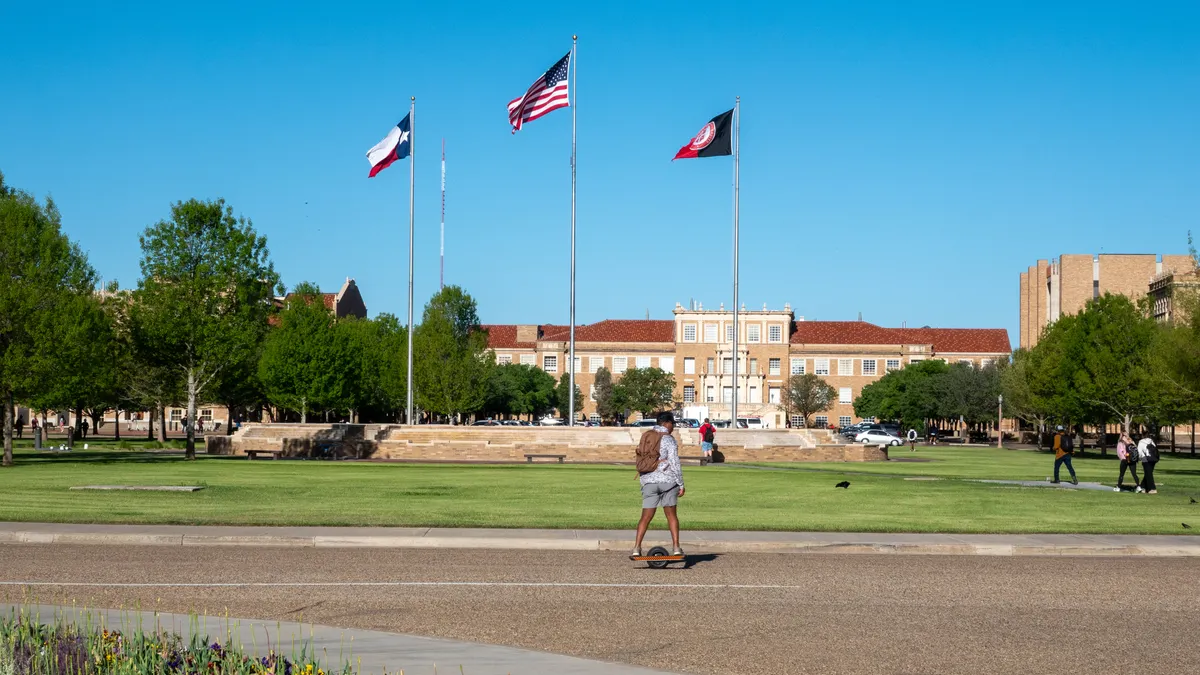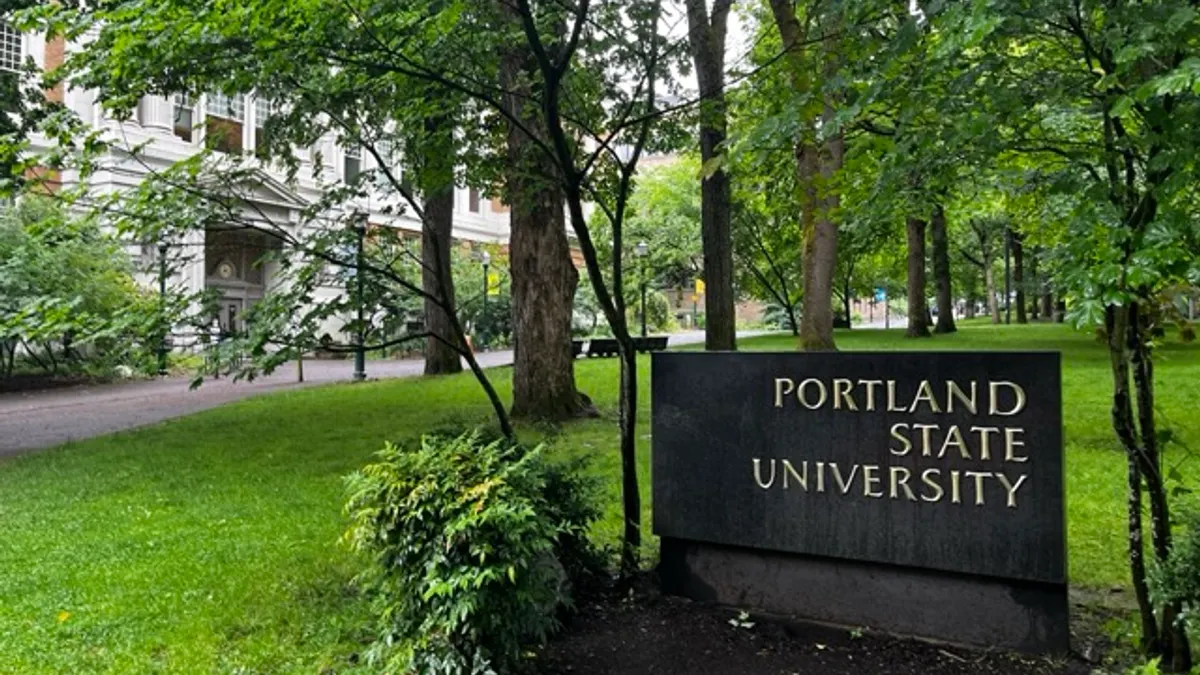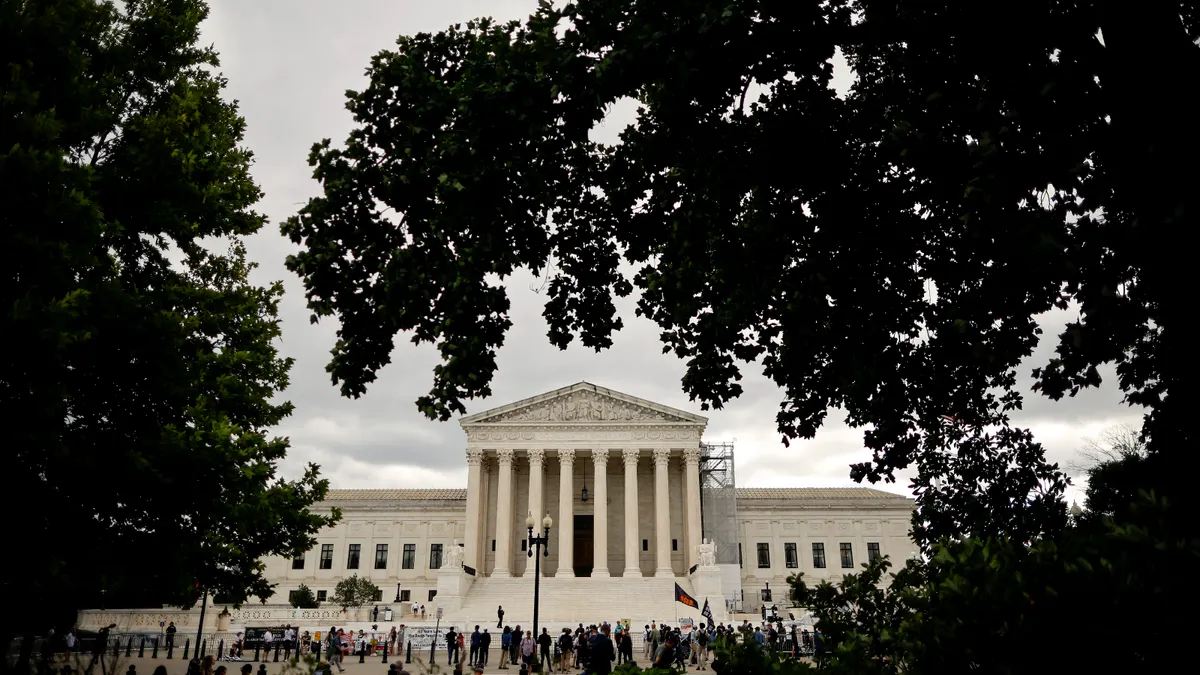George Mason University President Gregory Washington’s lawyer on Monday firmly repudiated the Trump administration's allegations that the public Virginia institution had violated civil rights law.
Last week, the U.S. Department of Education’s Office for Civil Rights alleged that George Mason's hiring and promotion practices violated Title VI, which bans federally funded institutions from discriminating based on race, color or national origin. An agency official singled out Washington as the leader of a “university-wide campaign to implement unlawful DEI policies that intentionally discriminate on the basis of race,” and the department demanded that he apologize.
In an 11-page letter to the college’s governing board sent on Washington's behalf, his attorney Douglas Gansler called OCR's allegations "a legal fiction," and stressed that George Mason's leadership has kept the university in compliance with federal law. "Far from needing to apologize, you all have a shared record to be proud of," he wrote.
Since July, the Trump administration has opened at least four investigations into George Mason, targeting the large research institution over universitywide diversity initiatives, of which Washington has been a champion.
The Education Department’s findings came just six weeks after the agency opened the investigation, citing a complaint from "multiple professors at GMU" alleging that the university's leaders had approved policies illegally giving certain underrepresented groups preferential treatment since 2020.
Gansler called out the brief length of the agency's investigation and said OCR’s letter shows that federal officials "have not spent sufficient time finding critical and materials facts."
"It is glaringly apparent that the OCR investigation process has been cut short, and 'findings' have been made in spite of a very incomplete fact-finding process, including only two interviews with university academic deans," Gansler wrote.
Since January, George Mason has renamed its diversity, equity and inclusion center and cut or restructured DEI-related positions to comply with federal directives, he also noted.
The Education Department's announcement last week focused much of its ire on Washington, alleging the university president's prior statements were proof of “support for racial preferencing.”
But some of the department's evidence was out-of-context or "gross mischaracterizations of statements made by Dr. Washington" that didn’t lead to policy changes, Gansler wrote. And one contested policy would have predated Washington's tenure, he argued.
In one example, the Education Department quoted a 2021 statement from Washington on adopting an inclusive hiring framework.
“If you have two candidates who are both ‘above the bar’ in terms of requirements for a position, but one adds to your diversity and the other does not, then why couldn’t that candidate be better, even if that candidate may not have better credentials than the other candidate?” Washington said at the time.
Gansler said the quote was pulled out of context and never resulted in a policy being enacted.
"His question was just that: a question, offered to provoke dialogue within the university community, as should be expected of a faculty member and academic leader of a university," the attorney wrote. "The question does not suggest hiring minority candidates of lesser credentials, but rather considering how two equally qualified candidates may contribute differently to the campus."
He added that Washington is not directly involved in evaluating candidates for faculty positions and that OCR would be unable to cite "any discriminatory hiring decision made based on it."
It is glaringly apparent that the OCR investigation process has been cut short, and "findings" have been made in spite of a very incomplete fact-finding process.

Douglas Gansler
Attorney for George Mason University President Gregory Washington
The Education Department gave George Mason 10 days to voluntarily agree to a proposal it said would resolve the alleged violations. Part of that proposal would require Washington to publicly apologize to the university community “for promoting unlawful discriminatory practices in hiring, promotion, and tenure processes."
In response, Gansler advised George Mason's trustees against agreeing to the Education Department’s demand for an apology.
"If the Board entertains OCR’s demand that Dr. Washington personally apologize for promoting unlawful discriminatory practices in hiring, promotion, and tenure processes, it will undermine GMU’s record of compliance," Gansler wrote. "An apology will amount to an admission that the university did something unlawful, opening GMU and the Board up to legal liability for conduct that did not occur under the Board’s watch."
And while the proposed apology may help resolve the Education Department's inquiry, it would not prevent other federal agencies from using that statement to penalize the university, the lawyer added.
Mike Fragoso, a lawyer representing the board, did not immediately respond to a request for comment Tuesday.
“Our sole focus is our fiduciary duty to serve the best interests of the University and the people of the Commonwealth of Virginia,” the board said in a Friday statement.
Publicly, George Mason's board has said little as the Trump administration announced the litany of its investigations into the university. The response prompted George Mason’s chapter of the American Association of University Professors to approve a no-confidence resolution against the board last month and called on it to defend Washington.


